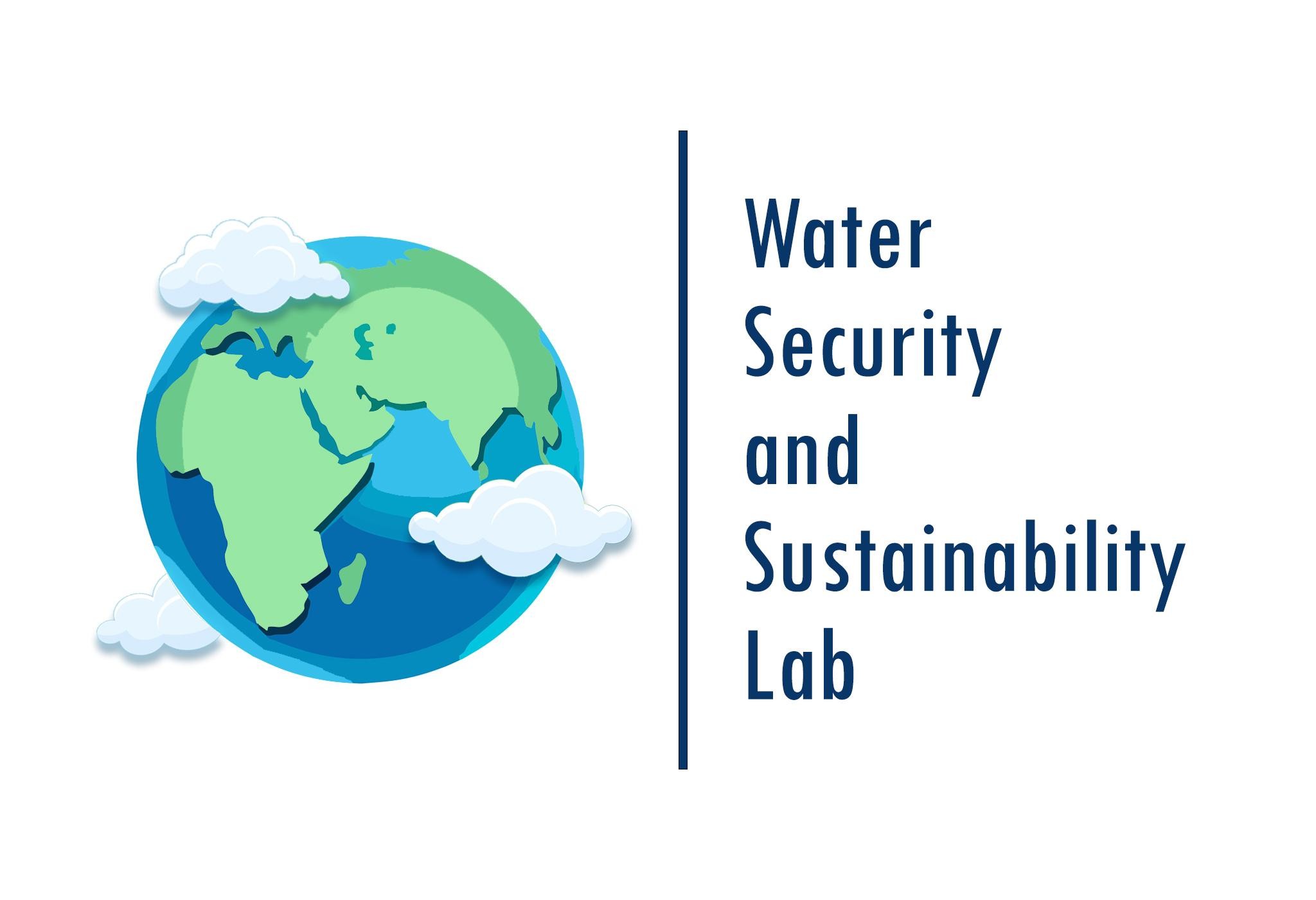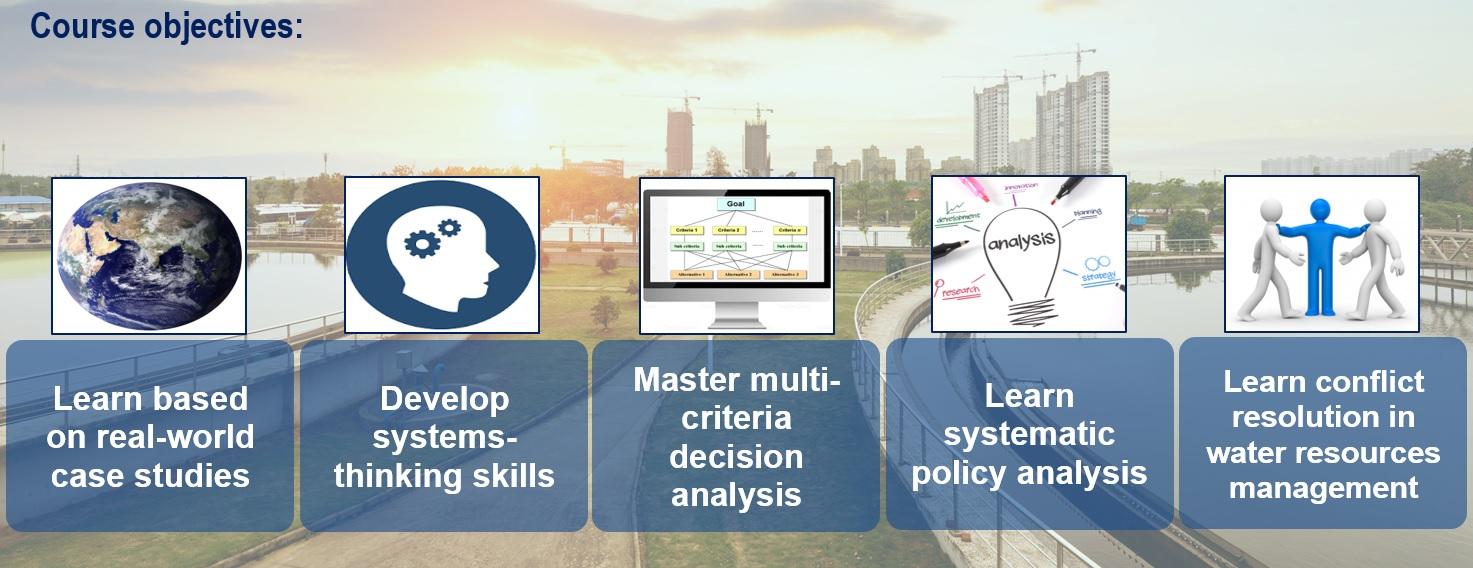Expertise
- Sustainability
- Water Reuse
- Environmental Data Analytics
- Climate Change in Natural Resource Systems
- Water Conservation
- Ecological Design & Engineering
- Environmental Engineering

About
Dr. Masoud Negahban-Azar is an Associate Professor of Environmental Engineering and Sustainability. He leads the Environmental Security and Sustainability Lab, where his research primarily focuses on environmental modeling and exploring innovative water reuse solutions, developing diagnostic decision support systems (DDSS) for resource management, and integrating sustainability analytics with Environmental, Social, and Governance (ESG) criteria to foster responsible and impactful decision-making across various sectors. Prior to joining the University of Maryland, he was a postdoctoral associate in the Department of Environmental Science and Engineering at Harvard University. He received his Ph.D. in Civil and Environmental Engineering from Colorado State University, his Masters of Business in Business Analytics from Robert H. Smith School of Business at University of Maryland, and his M.S. degree in Civil and Environmental Engineering from Tehran University.
Research
I lead a research group advancing work in three major areas of environmental and water systems research:
1- Integrated Modeling of Water and Environmental Systems
Our research advances the integrated modeling of water and environmental systems to support sustainable resource management. Focusing on watershed-scale hydrological modeling, we explore both water quantity and quality dynamics while incorporating emerging and underutilized resources, such as nontraditional water sources. By combining mathematical modeling with observational data, we address key challenges, including water scarcity, contamination risks, infrastructure feasibility, economic tradeoffs, and regulatory constraints. This interdisciplinary approach enables us to develop robust, data-informed strategies for managing interconnected water and environmental systems under changing conditions.
2- Diagnostic Decision Support Systems
Providing stakeholders with reliable tools is essential for effective water resources management. Positioned at the intersection of mathematical modeling, resource management, and hydrological science, our work develops innovative diagnostic decision tools that aid in the planning and management of water and environmental systems and evaluate their performance.
3- Sustainability Analytics and ESG
By integrating sustainability analytics with Environmental, Social, and Governance (ESG) criteria, our research provides a quantitative framework to assess and sustainability practices across diverse contexts. Leveraging environmental science and data-driven insights, we aim to develop tools that reveal ecological costs and sustainability opportunities, empowering decision-makers to adopt responsible, science-based strategies that align with corporate and societal sustainability goals.
Teaching
ENST 485 - Water Management in Urban Environment
As the population increases and the number of large urban areas keeps growing, managing water in urban areas is becoming more challenging. Water must be supplied for domestic, commercial, and industrial use, as well as irrigation and maintaining and enhancing local environments (e.g., urban streams). In addition, stormwater must be managed to prevent flooding and environmental damage, and used water, which contains organic matter, nutrients, and other constituents that can be extracted and reused, must be collected and managed. In this course we take a systems approach to urban water planning and management. We will explore urban hydrology, urban water cycle and runoff, water supply and demand, stormwater collection and treatment, and design of stormwater best management practices.
ENST 645 - Water and Development - A Global Challenge
This course offers a multidisciplinary investigation of water systems development and management through real-world case studies. We will examine the value and limitations of a series of real world case studies (6 of most important river basins in the world). This course will develop the concepts and skills needed to design effective management policies for developing and managing water resources and their derivative services. The case studies will reflect many of the major challenges associated with designing, planning, and implementing strategies governing the development and management of water resources and their derivative services (e.g., water supply and sanitation, irrigation, flood protection, navigation, hydropower, and environmental services) in the twenty-first century.

Publications
A selection of recent publications (Mentored students and postdocs are underlined):
Mirzaei, M., Shirmohammadi, A., Ruiz-Barradas, A., Olson, L.J., Negahban-Azar, M. (2025). Climate change effects on the spatial and temporal distribution of extreme precipitation in the Mid-Atlantic region. Urban Climate, https://doi.org/10.1016/j.uclim.2025.102382.
Babaei, L., Niksokhan, M.H., Torabian, A. and Negahban-Azar, M. Sustainability Indicators for Evaluation of the Water-Energy-Food Nexus in Urban Agriculture. (2024). International Journal of Sustainable Development & World Ecology, 31(4), 466–480.
Okpa, K., Farahmandfar, Z., Negahban-Azar, M. Developing a Drought Resilience Matrix to Evaluate Water Supply Alternatives. (2024). Climate. 2(5), 66.
Rahman, A., Negahban-Azar, M., Shirmohammadi, A., and Karki, R. Evaluating the potential of recycled water use for irrigation in southern Maryland: impact on groundwater conservation and crop yield. (2024). Water Supply. 24 (7): 2451–2472
Zhang, Z., Montas, H., Shirmohammadi, A., Leisnham, P., Negahban-Azar, M. Effectiveness of BMP Plans in Different Land Covers, with Random, Targeted, and Optimized Allocation. (2023). Science of The Total Environment. 892, 164428
Mosleh, M., Negahban-Azar, M., and Pavao-Zuckerman, M. Stormwater Green Infrastructure Resilience Assessment: A Social-Ecological Framework for Urban Stormwater Management. (2023). Water. 15(9). 1786. https://doi.org/10.3390/w15091786
Shoushtarian, F., Negahban-Azar, M., and Crooks, A. Investigating the Microscale Dynamics of Water Reuse Adoption by Farmers, and the Impacts on Local Water Resources Using an Agent Based Model. (2022). Socio-Environmental Systems Modeling. 4, 18148. https://doi.org/10.18174/sesmo.18148
Mosleh, M., Negahban-Azar, M., and Pavao-Zuckerman, M. Convergence in Perceptions of Ecosystem Services Supports Green Infrastructure Decision-Making in a Semi-Arid City. (2022). Environmental Management. https://doi.org/10.1007/s00267-022-01738-0
Kim, S., Paul, M., Negahban-Azar, M., Micallef, S.A., Rosenberg-Goldstein, R., Hashem, F., et al. Persistent Spatial Patterns of Listeria monocytogenes and Salmonella enterica Concentrations in Surface Waters: EOF Analysis of Data from Maryland. (2022). Applied Sciences. 12(15), 7526. https://doi.org/10.3390/app12157526
Paul, M., Rajib, A., Negahban-Azar, M., Shirmohammadi, A., Srivastava, P. Improved Agricultural Water Management in Data-scarce Semi-arid Watersheds: Value of Integrating Remotely Sensed Leaf Area Index in Hydrological Modeling. (2021). Science of the Total Environment. https://doi.org/10.1016/j.scitotenv.2021.148177
Paul, M., Negahban-Azar, M., Shirmohammadi, A. Assessing Crop Water Productivity Under Different Irrigation Scenarios in the Mid-Atlantic Region. (2021). Water. https://doi.org/10.3390/w13131826
Amereh, F,. Negahban-Azar, M., Isazadeh, S., Dabiri, H., Masihi, N., Jahangiri-Rad, and M., Rafiee, M. (2021). SARS-CoV-2 in Sewage Systems: A Review on State-of-the-Knowledge, Identification of Knowledge Gaps, Emerging Threats and Future Research Needs. Pathogens. https://doi.org/10.3390/pathogens10080946
Hanna, K., Paul, M., Negahban-Azar, M., and Shirmohammadi, A. (2021). Developing a Decision Support System for Economic Analysis of Irrigation Applications in Temperate Zones. Water. https://doi.org/10.3390/w13152044
Paul, M., Negahban-Azar, M., Shirmohammadi, A., Montas, H. Developing a Multicriteria Decision Analysis Framework to Evaluate Reclaimed Wastewater Use for Agricultural Irrigation: The Case Study of Maryland. (2021). Hydrology. https://doi.org/10.3390/hydrology8010004
Mosleh. L. and Negahban-Azar, M. Role of Models in Integrated Urban Water Management Decision Making: A Critical Review. (2021). Water. https://doi.org/10.3390/w13091252
Paul, M., Dangol, S., Kholodovsky, V., Sapkota, A., Negahban-Azar, M., Lansing, S. Modeling the Impacts of Climate Change on Crop Yield and Irrigation in the Monocacy River Watershed, USA. (2020). Climate. https://doi.org/10.3390/cli8120139
Shoushtarian, F. Negahban-Azar, M. Worldwide Regulations and Guidelines for Agricultural Water Reuse: a Critical Review. (2020). Water. https://doi.org/10.3390/w12040971
Paul, M., Negahban-Azar, M., Shirmohammadi, A., & Montas, H. Assessment of Agricultural Land Suitability for Irrigation with Reclaimed Water Using Geospatial Multi-Criteria Decision Analysis. (2020). Agricultural Water Management. https://doi.org/10.1016/j.agwat.2019.105987
Malayil, L., Negahban-Azar, M., Rosenberg-Goldstein, R., Sharma, M., Gleason, J., Muise, A., Murray, R., Sapkota, A. Zoom”ing Our Way Through Virtual Undergraduate Research Training: A Successful Redesign of the CONSERVE Summer Internship Program. Journal of Microbiology & Biology Education. https://doi.org/10.1128/jmbe.v22i1.2625
Paul, M. and Negahban-Azar, M. Sensitivity and Uncertainty Analysis for Streamflow Prediction Using Different Optimization Algorithms and Objective Functions: San Joaquin Watershed, California. Modeling Earth Systems and Environment. http://dx.doi.org/10.1007/s40808-018-0483-4
Group Members
Current Members:
 |
Manashi Paul, Postdoctoral Associate, 2020-present |
 |
Farshid Shoushtarian, Ph.D. Candidate, 2017-present |
|
Mary Schmidt, M.S. Student
|
Alumni:
International Visiting Scholars:
- Jiyun Han, Myongji University, South Korea. Mar - Sep 2020.
- Leila Babaei, Tehran University, Iran. Sep 2018 - Apr 2019.
Graduate Students:
- Manashi Paul, Ph.D., 2016 - 2020. Current position: Postdoctoral Associate at UMD.
- Leila Mosleh, Ph.D., 2016 - 2019. (former, advanced to candidacy under my supervision).
- Krystal Yhap, M.S., 2016 - 2018. Current position: Environmental Engineer at Applied Environmental Inc.
Undergraduate Researchers:
- Mairead Jones
- Christina Kundrat
- Mia Godbey
- Cody Lynes
- Christina Rogelio
- Madeleine Birny
- Rabiya Dar
- Larry Davis
- Mary Wakefield
- Alexander Echard